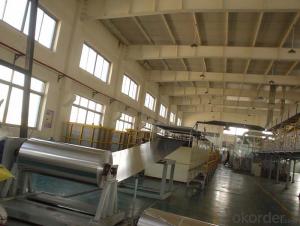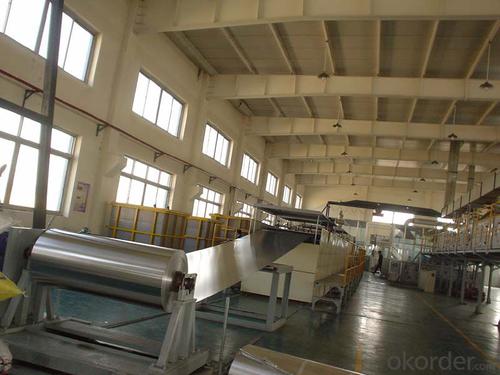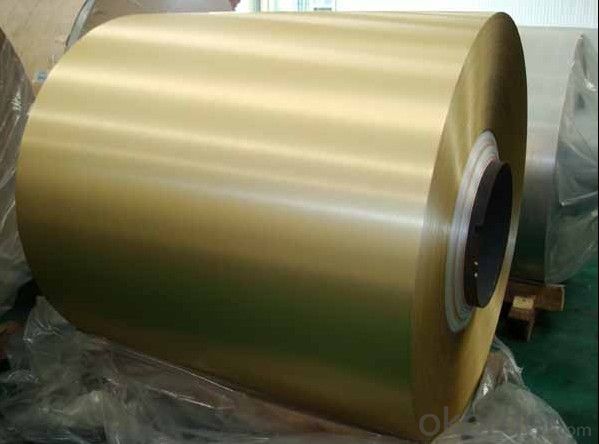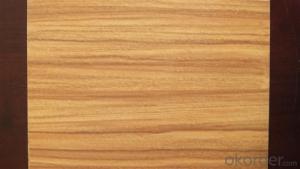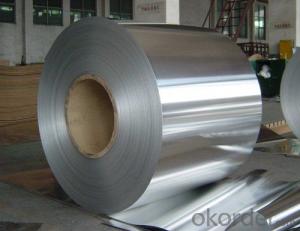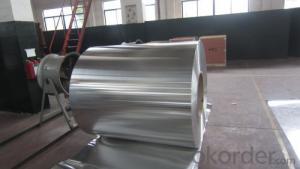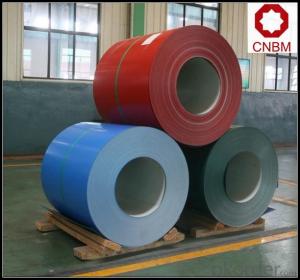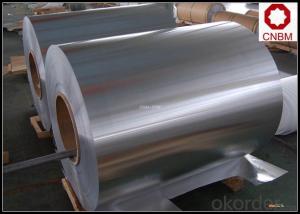Aluminum Coil Ontario - Aluminium Alloy Plate/Coil 1100, 2002, 3105, 5083, 6061
- Loading Port:
- Shanghai
- Payment Terms:
- TT OR LC
- Min Order Qty:
- 5 m.t.
- Supply Capability:
- 90000 m.t./month
OKorder Service Pledge
OKorder Financial Service
You Might Also Like
Specification
Product Specification
| Alloy Band | 6061, 6063, 6082 |
| Temper | O, T4, T6, T651 and other |
Thickness | ≤170mm |
Width | ≤2200mm |
| Longth | ≤12000mm |
| Application | Automobile, Aviation, Electronics, Mold, Quenched plate, Pre-stretched plate, etc |
| Standards | ASTM-B209. EN573-1, GB/T3880.1-2006 |
| MOQ | 5 tons |
| Payment Term | L/C; T/T. |
| Delivery Time | Within 30 days after receipt of deposit. |
| Notice: We can according to customer requirement offer other different alloy band and state product. | |
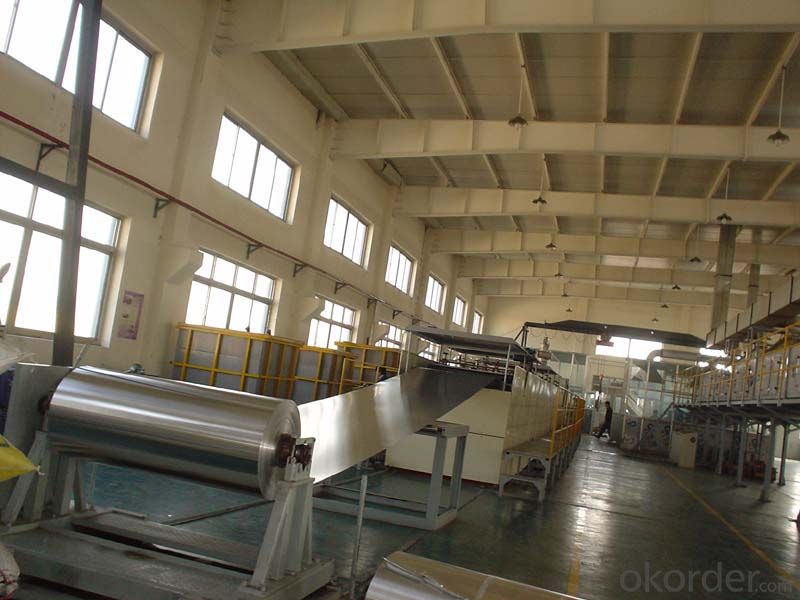
More products for you to choose
• 1. Packaging Aluminium - 1060 3104 3105 8011 8021, etc.
Product Feature - Good moisture-proof performance, shading performance and high hinder performance.
• 2. Automotive Aluminium - 5182 5083 5754 5052 5042 6061 6063 6082, etc.
Product Feature - Beautiful in appearance, remarkable in bake harden ability, high in safety coefficient.
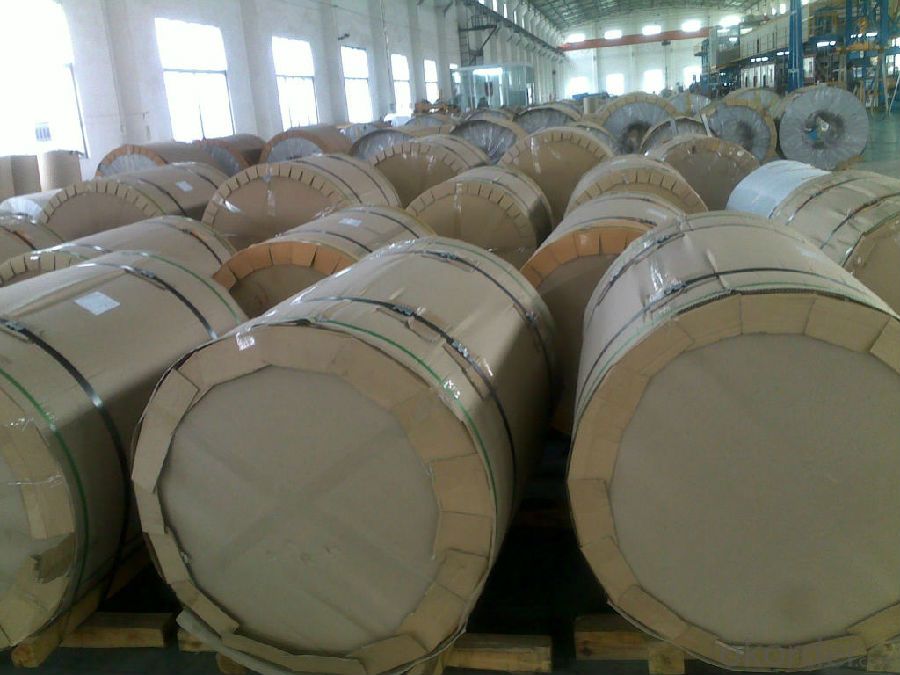
• 3. Building & Construction - 1060 1100 3003 5052, etc.
Product Feature - Light-weight, good processing performance, anti- corrosion, easy to maintain.
• 4. Transportation Aluminium - 1060 3003 5052 5754 5083 4104 6061 6016, etc.
Product Feature - High intensity, anti-corrosion, good wielding ability.
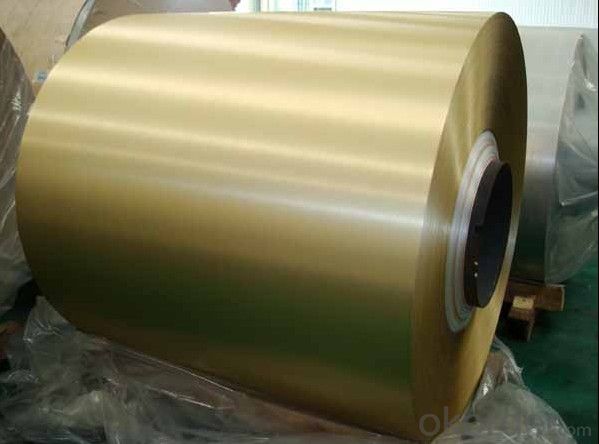
- Q: i have received an aluminium cooker,it's in good condition but the outside is discoloured by oil splatters.The body is round ,i have used baking soda+vineger( mix with water and boil for an hour) to clean the insides,it came off clean but outside i have no clue. used a lot of elbow grease,my hands are paining now..i have this thing for gleaming utensils ,any suggestions with homemade things,don't want to buy anything
- To clean discolored aluminum you can also heat 2 teaspoons cream of tarter per quart of water. It would be best to let the cooker soak in the mixture, but that might be difficult depending on the size of your cooker. Lemon juice or lime juice should also help because they have citric acid. You could cut a lemon in half and rub the halves on the cooker, then try scrubbing with something that has some texture to it (rough sponge or steel wool). The try the vinegar or cream of tarter mixture again. Whatever you use, don't try bleach as it is highly alkaline and dissolves aluminum. This leaves copper deposits can make it turn black.
- Q: What are the different coil coating options available for aluminum coils?
- Aluminum coils have various options for coil coating, each with its own unique benefits and properties. These options include: 1. Polyester: Polyester coil coating is a cost-effective and durable choice. It provides resistance against weathering, UV rays, and chemicals. Polyester coatings come in a wide array of colors and finishes, making them suitable for various aesthetic uses. 2. Polyvinylidene Fluoride (PVDF): PVDF coatings are highly durable and offer superior resistance against UV rays, weathering, and chemicals. They retain their color exceptionally well and can withstand harsh environmental conditions. PVDF coatings are commonly used in architectural applications that require long-term durability and appealing aesthetics. 3. Polyurethane: Polyurethane coil coatings are known for their excellent adhesion, flexibility, and impact resistance. They have a high gloss and vibrant colors. Polyurethane coatings are often used in applications that demand superior resistance against abrasion, such as appliances and automotive components. 4. Epoxy: Epoxy coil coatings provide excellent protection against corrosion and possess strong adhesion properties. They are frequently used in industrial applications that require resistance against chemicals and harsh environments. Epoxy coatings can be applied as either a primer or a topcoat, depending on specific needs. 5. Acrylic: Acrylic coil coatings offer good resistance against weather, color retention, and gloss. They are commonly used in outdoor applications where exposure to UV rays and environmental conditions is a concern. Acrylic coatings can be formulated to achieve different levels of durability and flexibility. 6. Silicone Modified Polyester (SMP): SMP coil coatings combine the advantages of polyester and silicone, resulting in enhanced weather resistance and durability. They maintain their color and gloss exceptionally well and exhibit resistance against chalking. SMP coatings are frequently used in architectural and industrial applications. When selecting the appropriate coil coating option for aluminum coils, it is crucial to consider the specific requirements of the application, including durability, aesthetics, and environmental conditions. Seeking advice from a coil coating expert can help determine the best option based on desired performance and appearance.
- Q: My grandpa died from Alzheimer’s disease, I didn't know what it was but I came across something slightly disturbing. There were several blog and research sites linking Sodium Aluminum Phosphate ((you know the stuff in bisquick pancake batter stuff or maybe eggo waffles)) what bothered me is that two root words of that ingredient bothers me aluminum Phosphate ((is that like phospherous, as in phospherous paint...didn't that turn out bad to the body?)) If so maybe I need a second opinion or ensurance that it is real or not if it is I'm not eating pancakes again. Please help answer this.
- Sodium aluminum phosphate is an ingredient in baking powder, which is used as a leavening agent (creates the holes / airspaces) in products like waffles, pancakes, cakes, breads. Only a small amount is used, so I'm not personally worried about the amount--I don't eat things like pancakes, waffles, cakes very often. Most breads tend to use yeast as the leavening agent, which means they do not use baking powder. I suppose waffles, pancakes, and cakes could be made with yeast as a leavening agent, but it would be a more time consuming (and complicated) process. (Iirc, some pancakes are made with sourdough, which uses yeast as a leavening agent.) By the way, making your own pancakes or waffles at home does not solve the problem unless you eliminate baking powder and use yeast instead. I've never heard of phosphorus paint, or a danger from it--the one I remember is lead paint and the dangers from it. Maybe I'm just getting old and not keeping up with all the latest hazards. To conclude, I'm not worried about the small amounts of sodium aluminum phosphate that I may get from eating products made with baking powder. Maybe if I ate large stacks of pancakes every day, I'd be more concerned, but I think the bigger concern in that case would be a lack of variety (and various trace nutrients)in my diet.
- Q: Almost every restaraunt uses aluminium foils and polyehylene for packing foods - that you carry to home.How safe is this ?For how long would the temperature be mainitained ?and within what time if consumed and is it safe ?
- Aluminium (Al) foil is bad for packaging because some of the Al will be absorbed by the food and too much Al is toxic. Instead of Al cooking vessels you should use stainless steel vessels because some Al will end up in your food from the Al containers or vessels. If you conduct a search for Aluminium (OR Al) poisoning you should learn more. A search for aluminium (OR Al) + toxic dose (OR amount) may also be useful.
- Q: Are there any environmental benefits to using aluminum coils?
- Yes, there are several environmental benefits to using aluminum coils. Firstly, aluminum is a highly sustainable material as it is 100% recyclable without losing its original properties. This means that using aluminum coils helps reduce the demand for mining and extracting new raw materials, reducing the environmental impact associated with these processes. Additionally, recycling aluminum requires only about 5% of the energy needed to produce primary aluminum, resulting in significant energy savings and reduced greenhouse gas emissions. Moreover, aluminum coils have a longer lifespan compared to other materials commonly used in coils, such as copper or steel. This durability means that fewer coils need to be manufactured and replaced over time, resulting in less waste generation and lower overall environmental impact. Furthermore, aluminum is corrosion-resistant, which eliminates the need for additional treatments or coatings that may contain harmful chemicals. This reduces the release of potentially hazardous substances into the environment during the manufacturing and use of aluminum coils. Lastly, aluminum is lightweight, which contributes to lower transportation costs and energy consumption during distribution. This aspect decreases fuel consumption and associated emissions, reducing the overall carbon footprint of using aluminum coils. Considering these factors, the use of aluminum coils provides significant environmental benefits, including reduced resource extraction, energy conservation, waste reduction, and lower emissions.
- Q: i've been looking all over the internet for this information and i cant fin it! please help!what is aluminum's isotopic notation?what is aluminum's density at room temperature with units?what is aluminum's most common oxidation # ?aluminums e-dot diagram? symbol with valence electronschemical equation?enviornmental concers?
- Aluminum is indeed very bad for us. I avoid drinking from aluminum cans and using foil. Also, anyone using a microwave should definitely use glass dishes that are microwave safe. It is important to never use plastic wrap or plastic dishes in the microwave because carcinogens are released when the plastic is heated up. It basically cooks the toxins right into your food.
- Q: Are aluminum coils applicable in the manufacturing process of automobiles?
- <p>Yes, aluminum coils are widely used in automobile manufacturing. They are utilized in various components such as engine parts, body panels, and wheels due to their lightweight, corrosion resistance, and strength. Aluminum's recyclability and energy efficiency also make it an environmentally friendly choice for the automotive industry.</p>
- Q: Aluminum roll width 750mm, single layer thickness 6.5mm, diameter 400mm., how to calculate the weight of the aluminum roll?
- You can use the outside diameter, the inner diameter and the width to get the volume. You know the density and volume, and then you can find the weight naturally
- Q: im doing an a level physics presentation on aluminium and im trying to compare aluminium and copper in electricity pylons.i know that copper will have a better conductance than aluminium becasue it has a lower resitivity but i need to come up with a calculation to prove why aluminium is better for use in electricity pylons? i know its down to aluminium being more lightweight than copper and also much cheaper. But im not sure how to create an calculation to show this?:) any help is greatly appreciated
- Copper has lower resistance per unit volume, ie, a 1 cm diameter copper wire has less resistance than a 1 cm aluminum wire. BUT, aluminum is much lighter than Cu for the same diameter. If you used an aluminum wire that weighs the same as the 1 cm diameter copper wire, it would have LOWER resistance. And that is why aluminum is used in power transmission, and also in aircraft, where weight is important. to do this you calculate density resistivity which is (resistivity x density). Here is a partial table: Al 28.2e-9 Ω-m * 2700 kg/m? = 76e-6 Ω-kg/m? Cu 17.2e-9 Ω-m * 8960 kg/m? = 154e-6 Ω-kg/m? Ag 15.9e-9 Ω-m * 10500 kg/m? = 167e-6 Ω-kg/m? Au 22.14e-9 Ω-m * 19300 kg/m? = 427e-6 Ω-kg/m? Zn 68e-9 Ω-m * 7130 kg/m? = 485-6 Ω-kg/m? Fe 100e-9 Ω-m * 7870 kg/m? = 787e-6 Ω-kg/m? Note that Al is half that of Cu.
- Q: I am concerned about the environment so I collect empty aluminum cans off the street when I walk my dog. Right now I have 3 large garbage bags full of crushed aluminum can. The problem is... some of the cans have dirt on and in them. Some of thoroughly flattened ones may even have small pebbles embedded in them. Will these be accepted at the recycling facility? I'm guessing it doesn't matter because when they melt them any organic materials will burn away and any dirt particles or small pebbles will be separated from the molten aluminum. What do you think?
- You might need to wash them first.
Send your message to us
Aluminum Coil Ontario - Aluminium Alloy Plate/Coil 1100, 2002, 3105, 5083, 6061
- Loading Port:
- Shanghai
- Payment Terms:
- TT OR LC
- Min Order Qty:
- 5 m.t.
- Supply Capability:
- 90000 m.t./month
OKorder Service Pledge
OKorder Financial Service
Similar products
Hot products
Hot Searches
Related keywords
